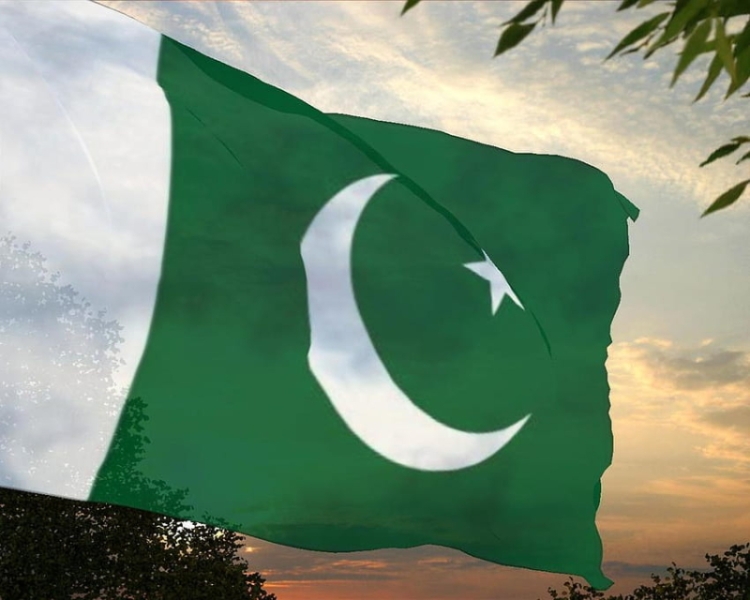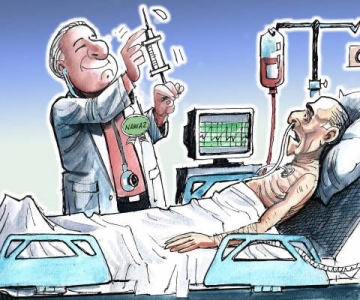Raza Rumi wonders why we remain in search of a Pakistani identity
Half-truths are what we love to indulge in. One of the countless crimes committed by President Asif Ali Zardari is that he wears a Sindhi cap instead of a Jinnah cap. That by preferring a Sindhi topi and thundering at the occasion of late Benazir Bhutto’s death anniversary, he undermined his Pakistani identity, is truly mystifying. After all, what is a Pakistani identity and why is the Jinnah cap being elevated to the level of an article of national faith?
If anything, Mr Jinnah’s patronage of Muslim identity mark was an afterthought. His usual attire was a well-tailored pucca-sahib-like suit. It was only in the nineteen forties and that too close to India’s independence that Mr Jinnah started donning the Muslim nobility’s attire.
So what is this fuss all about? Constructing Pakistan’s ideology based on theological interpretation of a universal religion like Islam has been a carefully executed project of the Pakistani establishment and its shadows in the non-state domains. Such cliques have grown bigger, mushroomed and are now essential to our lived reality. Therefore lambasting of Zardari on not sporting a Jinnah cap finds public resonance and broad acceptability within the populous Punjab province where the Urdu press flourishes and finds readers and writers aplenty.
The opening up of the electronic media has been a liberating experience but it also means that the deep-seated and embedded distortions, cultivated by the state, biased education system and militarisation, have now captured a wider public space. This includes audiences and listeners who are outside the ambit of the ‘literate’. Given the inherent dangers of such a phenomenal change, many independent observers have called for arresting and regulating further corporatization of the media. Advanced countries such as the USA have already experienced the pernicious trend of ‘dumbing down’ and mainstreaming unaccountable political and security agenda[s]. The case of the war on terror is a pertinent example of this unfortunate reality. If we are aware of it should we not undertake pro-active course correction?
The dominant linear Pakistani narrative is geared to kill diversity; and silence dissent of all kinds. This is why women politicians are perennially under attack from the clergy and patriarchal power structures. The myriad identities of Pakistan are rendered invisible under the broad rubric of Islam, the ‘Pakistan ideology’ and an unidentified ‘Pakistaniat’. This is why Pakistan has remained an unworkable federation where provincial or local identity and its articulation has always been a challenge. Defining Pakistani identity remains a distant goal even after sixty years.
Meeting Indians abroad is always an eye-opening experience. They suffer from all the divisiveness of their fractured social reality. But when it comes to defining themselves they proudly own up to their national, howsoever imagined, Indian identity. On the other hand, Pakistanis are wont to define themselves in terms of their ethnic and religious-sectarian identities. This is a deeper issue and we have yet to come to terms with it. And, this is what many visitors to India often point out. Despite the squalor and widespread poverty in India, the optimism of its residents is remarkable. On the other hand, speak to an ordinary Pakistani and you will sense impending doom. These days our countrymen express little faith in the future of Pakistan.
In fact a recent survey conducted by the British Council makes some depressing revelations. For instance, on the question of identity three quarters of the youth surveyed viewed themselves as Muslims first, Pakistani second, compared to just 14% who saw themselves as primarily citizens of Pakistan. More importantly, the survey found a widespread disenchantment with democracy, as only a third of the young respondents believed that it was the best system for the country, while another third prefer sharia. Militarization and educational indoctrination has resulted in 60% expressing faith in the military and 50% believing in religious educational institutes. But the highlight of this survey was that our youth were despondent about the social injustice in Pakistan. When asked this question, they saw lack of opportunity and lack of merit in awarding jobs as a major hurdle towards their belief in the country they live in.
It is time that we acknowledged that this lack of identity and faith in our country is closely linked to the way we have digressed from the vision of Jinnah who had clearly stated that “Pakistan is not going to be a theocratic state to be ruled by priests with a divine mission”. The lashkars and hordes of jihadis and their sponsors need to emphasise that. It is on record that Mr Jinnah had rebuked a Muslim League worker when he raised the slogan – ‘Pakistan means no God except God’. This incident took place in a Karachi meeting of the Muslim League immediately after the creation of Pakistan. In fact the Islamic references to Pakistan were not approved by the higher command of the Muslim League. Of course, doctored histories would make us believe otherwise.
Pakistan’s first Law Minister was J.N. Mandal, a Hindu and Sir Zafarullah Khan, an Ahmedi was appointed as the country’s first Foreign Minister. A Hindu poet Jagan Nath Azad was asked to compose the first national anthem of Pakistan. Mr Jinnah’s words, “You may belong to any religion, caste or creed – this has nothing to do with the business of the state”, were amply backed by his actions.
Therefore, we need to accept that if we have to survive as a nation, we have to respect the pluralism of Pakistan. We need to acknowledge that religion is a personal matter and its mixing in the business of the state only leads to a sectarian based theocratic mode of governance that can exclude many citizens. We remain in search of an identity and unless we respect the rights of ethnicities, minorities and determine that much of Pakistan lies beyond the Grand Trunk Road, there is little hope that we will become an inclusive, socially just state.
With a demographic revolution in the making, a depressed and cynical youth is a time bomb that we are living with. Things will have to change, otherwise history has its own ways of effecting transformations that are not always peaceful or desirable.
Published in The Friday Times



